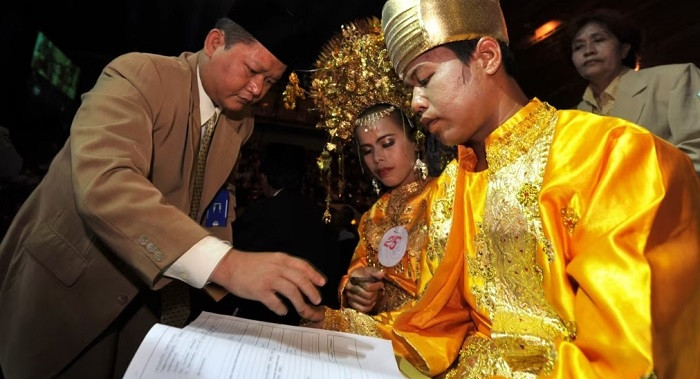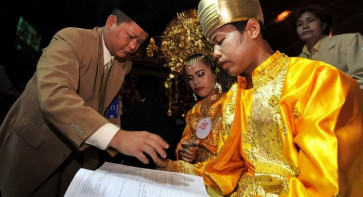Popular Reads
Top Results
Can't find what you're looking for?
View all search resultsPopular Reads
Top Results
Can't find what you're looking for?
View all search resultsQuestioning limitations on the right to (interfaith) marriage
A limitation on exercising rights does not mean the nullification of such rights, as is apparent in the case of mixed marriage.
Change text size
Gift Premium Articles
to Anyone
On July 17 the Supreme Court released a circular letter asking judges in district courts and courts of appeal across the country to reject interreligious marriages. The letter has since triggered mixed public responses, including from the Indonesian Ulema Council (MUI) and human rights group Setara Institute.
From the human rights perspective, the letter is a blatant manifestation of religious-based discrimination perpetrated by the state against citizens, which runs counter to the Universal Declaration of Human Rights (UDHR), specifically Article 16, which states that “Men and women of full age, without any limitation due to race, nationality or religion, have the right to marry and to found a family”.
The right to marry without any limitation due to religion is, in fact, limited by the Indonesian government considering one’s religion. The question is whether such a limitation is acceptable.
The court issued the letter only after a number of district courts had allowed registration of marriage between different faiths, the latest being a Christian man who married his Muslim partner in Central Jakarta late last month.
The Supreme Court’s policy reinforces the decision of the Constitutional Court, which unanimously agreed in February of this year to reject the petition by Ramos Petege, a Roman Catholic, who challenged the 1974 Marriage Law for not accommodating the union between people from different faiths. Due to the law, the Papuan man could not marry the love of his life, who is a Muslim.
Contrary to popular belief, limitations on human rights are possible under certain pretexts. UDHR Article 29 states how limitations can be applied in exercising rights, where, “In the exercise of his rights and freedoms, everyone shall be subject only to such limitations as are determined by law solely for the purpose of securing due recognition and respect for the rights and freedoms of others and of meeting the just requirements of morality, public order and the general welfare in a democratic society.”



















